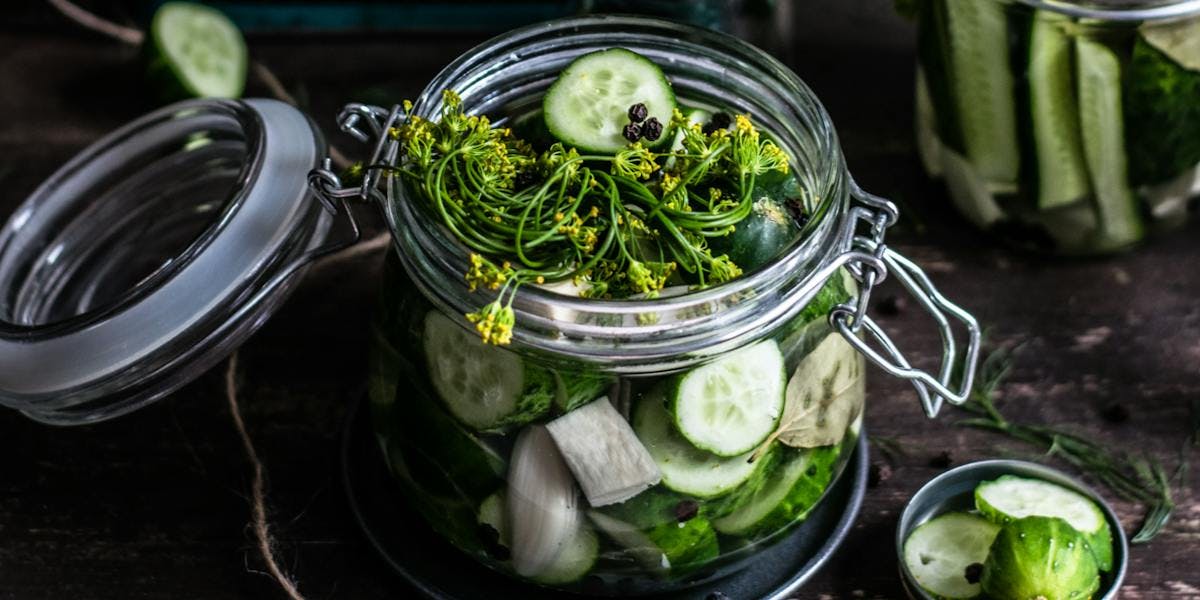Lifestyle
In A Pickle: How To Ferment Your Own Vegetables
6min read
Been wanting to join the hype that is fermented vegetables, but not sure where to start? Keep reading to discover all you need to know about this delicious, historical and health-beneficial trend.
Let us help you out of your pickle, by giving the easiest ways to make your own (pickle, that is – and kimchi. And sauerkraut).
How to eat fermented vegetables
Fermented vegetables have been a key staple in cuisines across the globe for millennia: they can be found in alcoholic drinks, sauerkraut, kimchi, miso, cheeses, sourdough bread, soy sauce, kombucha and so much more. Today we’re focussing on fermented vegetables.
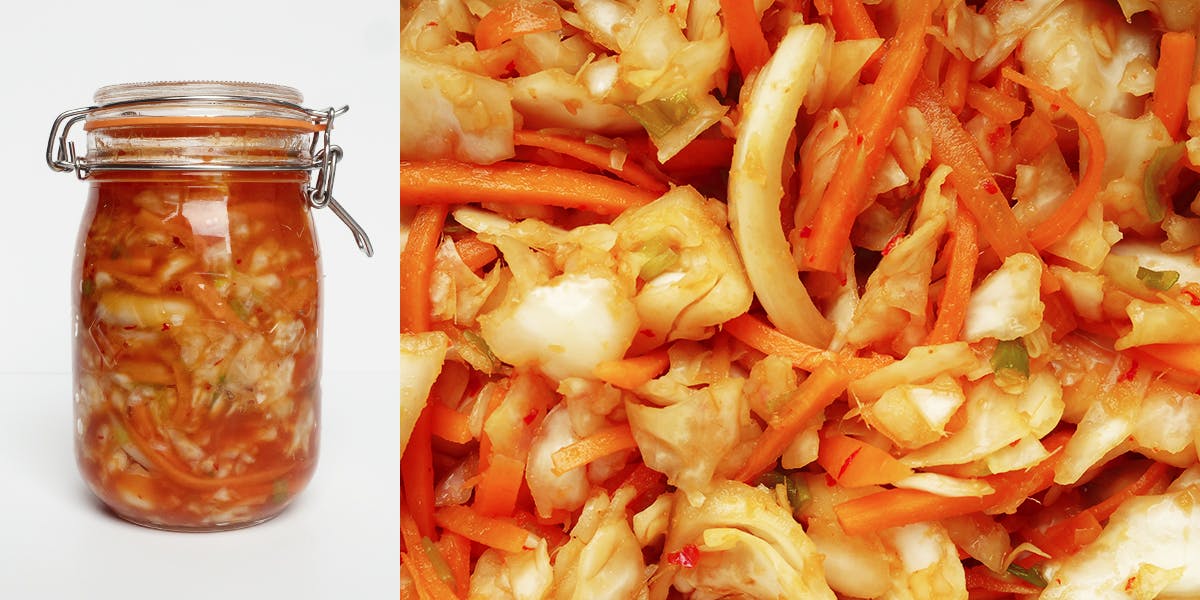
Primarily this would’ve been a practical method of making vegetables last for vastly longer periods of time when fresh produce wasn’t always available. However, home-fermentation has seen a popular rise in the UK in recent years owing to the nation’s appreciation of tasty dishes with cultural significance.
Today, fermented vegetables can be eaten as part of almost any dish we choose, with some of our favourite combinations being:
- Val’s crispy fried rice with generous servings of kimchi
- These vegan hot dogs with a healthy scoop of curried coleslaw sauerkraut
- This summer bruschetta with dollops of dill pickle
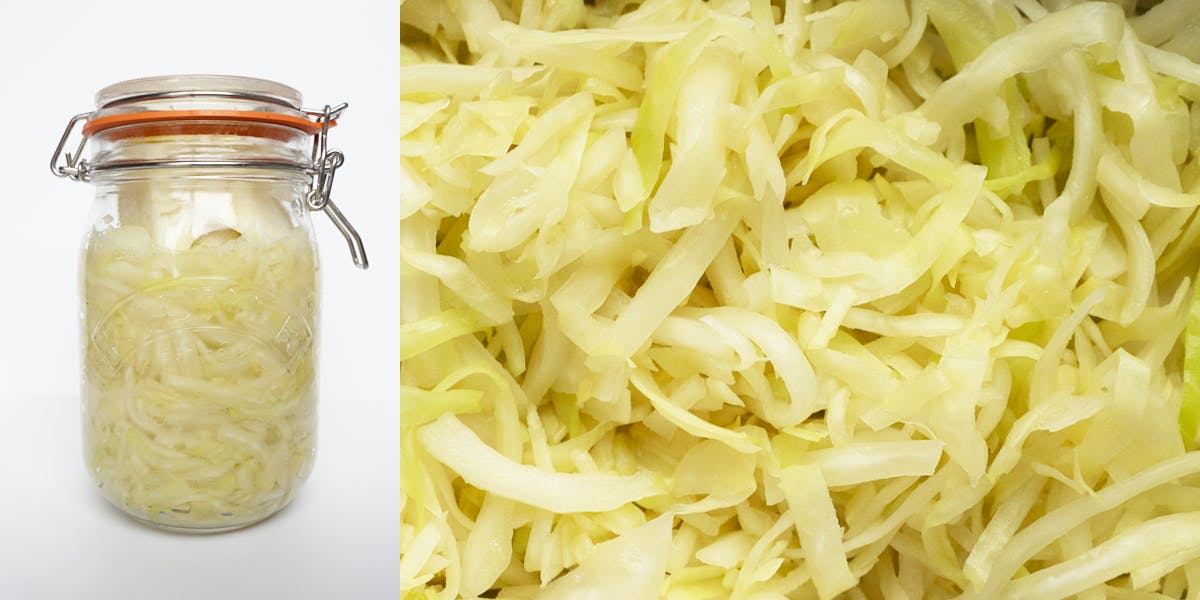
Benefits of fermented foods
Although the act of fermenting vegetables is a long-held tradition, it’s only been in the last 200 years that scientists (and early foodies) have discovered what goes on during the process, and why it’s so good for us. Fermentation generates the growth of beneficial bacteria, called probiotics. Some health benefits of eating fermented vegetables include:
- A healthier gut – fermented vegetables naturally generate probiotics, which will promote good bacteria that your digestive system is sure to thank you for
- Improved immune function – those helpful probiotics work to reduce the risk of infections
- A healthier heart – fermented foods have been linked to a lower risk of heart disease, including moderately lowering blood pressure and cholesterol
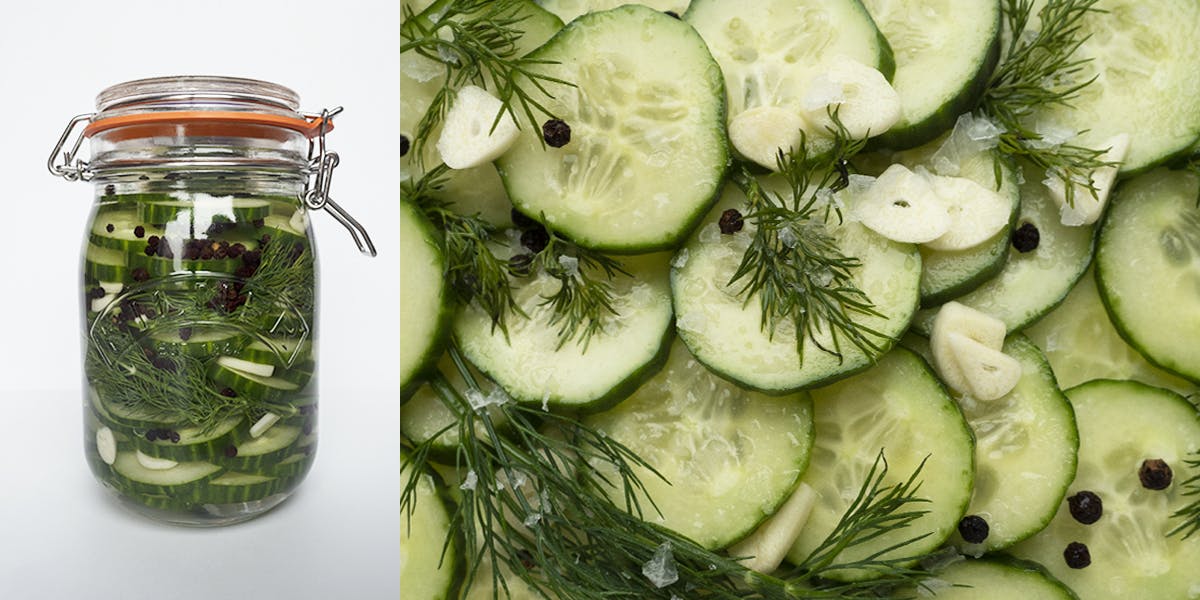
How to ferment vegetables
There are numerous ways to ferment your own vegetables at home, and here are some of the tastiest and most effective ways:
- Sauerkraut – try this Central and Eastern European fermented cabbage technique at home
- Kimchi – give this Korean ferment a go with cabbage, carrots, and spring onions
- Dill pickle – or simply old-school gherkins, are cucumbers fermented in a garlic and dill brine
- Curried coleslaw sauerkraut – is chef Joey’s jazzed up, ostentatious and bold variation of sauerkraut
How long does it take to ferment vegetables?
It’s always worth following specific instructions and recipes, but the vegetable fermentation process can take anything between four days and two weeks to reach peak flavour. After which, your tangy and savoury condiment will keep for up to two months in the fridge.
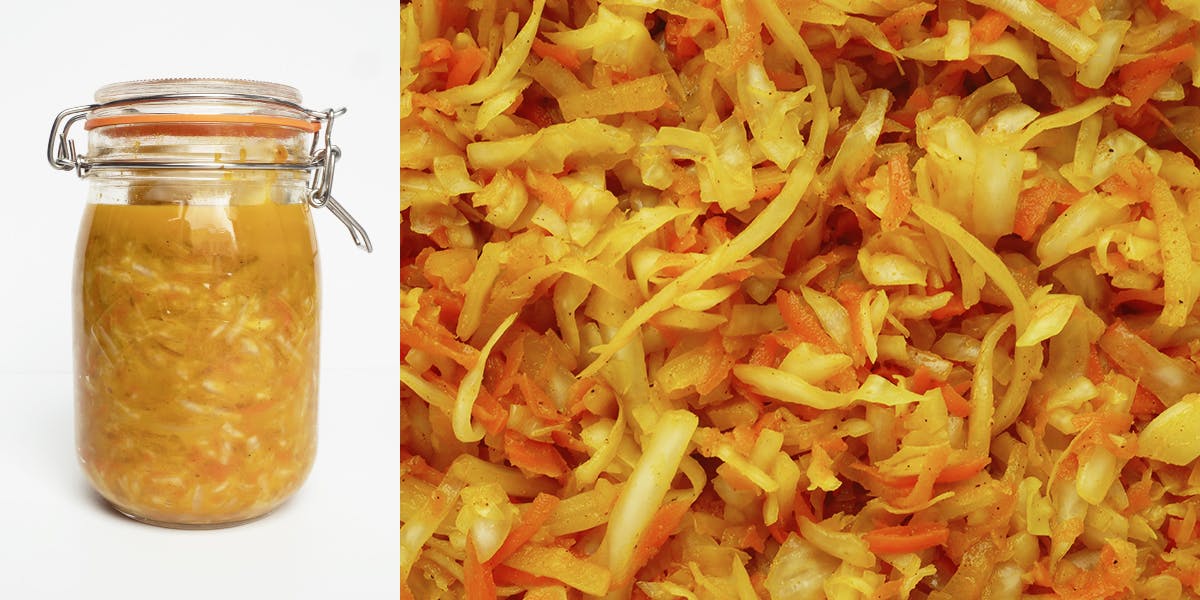
How to ferment vegetables with salt
Sauerkraut is a great example of fermenting solely with salt. The ferment contains only shredded cabbage, salt and millions of naturally developed lactic acid bacteria that are created when the sugars leave the cabbage, a naturally occurring process which is sped up by the high volume of salt.
Be sure to try this at home and let us know the results in the comments below.
By Fabian Jackson
Fabian is one of our lovely Content Marketing Assistants who loves writing almost as much as he loves coffee, old episodes of Escape to the Country (no judgement here), and cooking up a storm in his kitchen.
Let us take care of dinner
We help to make eating more plants easy and delicious. Fancy letting us take care of dinner? Check out our delicious meals here.
Shop now
